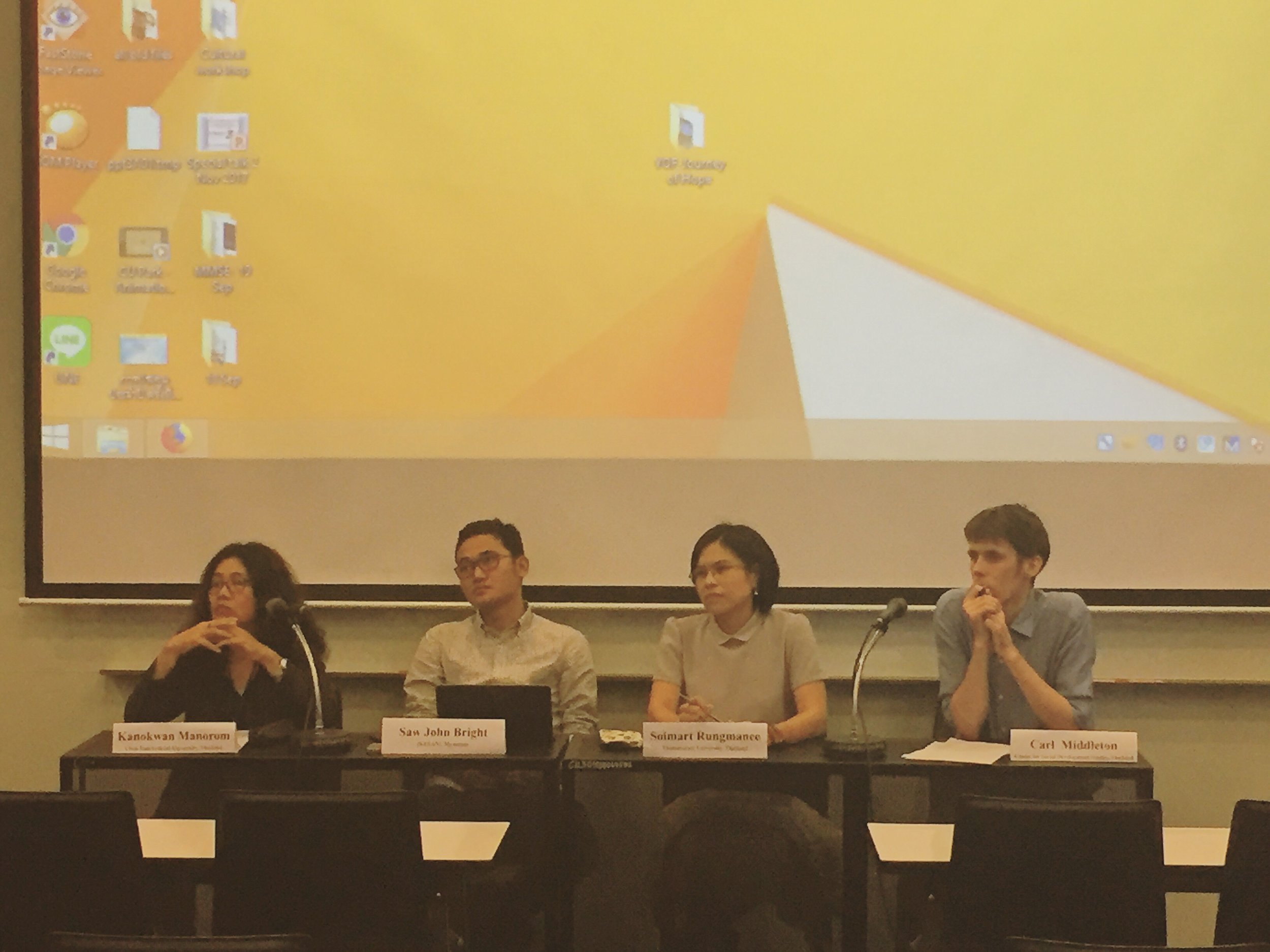EVENT: "Towards a Creative Diplomacy Agenda: Exploring New Approaches for Contemporary Transboundary Water Governance"
/Why Think Tanks and Civil Society Networks Matter
Towards a Creative Diplomacy Agenda:
Exploring New Approaches for Contemporary Transboundary Water Governance
As part of a special day of worldwide events, spanning over 100 cities and with 160 organizations involved, Chulalongkorn University (CSDS, Chula Global Network and the Center for Peace and Conflict Studies) hosted a Why Think Tanks Matter event, moderated by Prof. Kasira Cheeppensook, focused on the topic of how civil society can create a stronger diplomacy agenda for transboundary water governance and riparian diplomacy. This series of global events was sparked to help highlight the crucial role think tanks and civil society now play in analyzing, developing and promoting policy solutions, particularly as the rise of populism, nationalism and protectionism increase worldwide, signaling an end to the traditional post-WWII order of politics and society. Particularly here in Southeast Asia where a change in the relationships between the environment, social movements, governments and human rights is creating a new set of security challenges, solutions are required amongst all institutions to cooperate in a more consistent and effective manner.
Paired with this important topic were the issues and opportunities that face this region in particular, of perhaps the most precious resource for humankind: water. With the region's rivers serving not only as the lifeblood to millions of people, but also as boundaries to many nations in South and Southeast Asia, the importance of pragmatic and effective diplomacy, not just by governments, but by civil society institutions, will be vital to the success and stability of the region for the foreseeable future.
As the organizations and institutions tasked with such work have a tough road ahead on these topics, it is imperative that they operate with knowledge and resources that reflect and come from a variety and multiplicity of levels and stakeholders, in order to remain relevant, impactful and fair. This is perhaps the most important accompanying set of discussions that were brought up by almost every panelists, as it is recognized widely that knowledge equates with power, so it is the role of civil society to ensure that this knowledge is used in an innovative and widespread manner to promote sustainable and equitable change for all. Panelists at this event did not mince words and stressed the importance of collaboration and transparency, which are still heavily needed in the work being done at this topics at all levels.
Professor Imtiaz Ahmed, from the Centre for Genocide Studies at the University of Dhaka, Bangladesh opened the panel by providing an alternative yet thought provoking take on the meanings and re-contextualizations of both "water" and "rivers," as he supports the idea that this must now be done in order to better understand how we use water and how it is interwoven in all parts of society and daily life. The concepts of using the new methodology of micro-narratives to better tell stories in order to bring about creative hydrodiplomacy were also brought up, adding to the innovation that this series of events hopes to spark throughout civil society. Dr. John Dore from the Department for Foreign Affairs and Trade, Government of Australia challenged the room to think outside of the proverbial box as he reviewed and analysed alternative mechanisms and organizations like the Lancang Mekong Cooperation Framework that are reshaping water policy and governance in the region, fueled by new regional players and an increasingly serious battle for depleting resources. The subsequent three presentations given by Ganesh Pangare and Bushra Nishat (International Water Association), Dr. Sucharit Koonthanakulwong (UNESCO Chair on Water & Sustainable Development) and Asst. Prof. Dr. Carl Middleton (CSDS/Faculty of Political Science, Chulalongkorn University) all focused on local case studies where civil society, co-productions of knowledge and innovations are being employed to better engage all members of society in projects focused on hydro-diplomacy and water governance. Lastly Dr. Chariyaway Suntabutra the Former Ambassador of Thailand to Egypt, Kenya and Germany provided his insight on the panel's non-traditional methods compared with the traditional diplomacy approaches observed from his time working for the government, and stressed that these new ways of thinking are indeed vital for our shared success and survival in the future. The wrap-up to the panel given, by Surichai Wun'gaeo, served as both an inspiration and call to action for all present, with emphasis on challenging the current status quo in order to influence those in power and to make real, tangible change, starting from the lowest grassroots level all the way up to the top.







